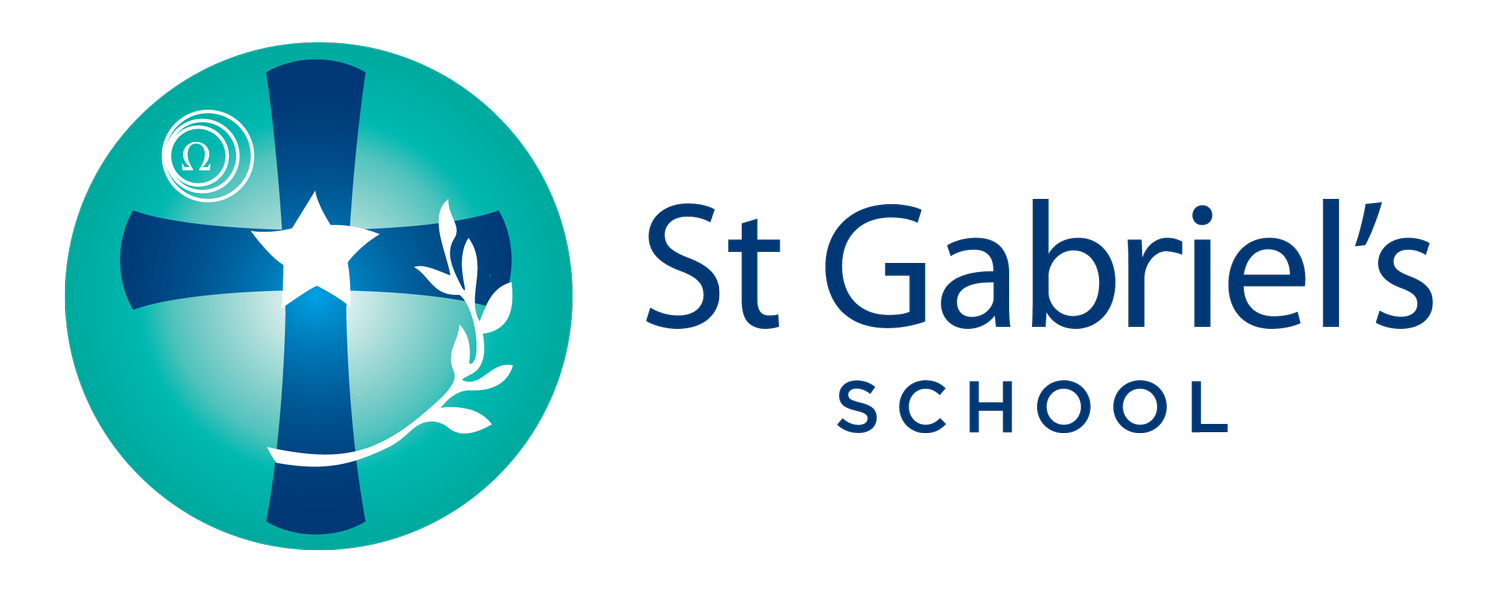Secondary Education
7-12 at St Gabriel’s
In Secondary School, students learn with a blended learning approach which incorporates face-to-face teaching, flipped classrooms and ICT. Blended learning emphasises critical skills needed beyond the Year 12 classroom and into the post-school transition: Creativity, Collaboration, Communication, Critical Thinking and Cooperation.
The Secondary School runs on a fortnightly timetable which consists of five 60-minute periods per day. Students transition throughout the school to their various subjects and learn from the Stage 4, Stage 5, and Stage 6 Life Skills Curriculum. In addition, students also study school-based Religion and Pastoral Care lessons. Students access the local community to do their Physical Education, field work and curriculum-based activities.
Teaching and Learning
-
English in the secondary setting focuses on the development of effective communication and literacy skills to enhance our students’ confidence and participation in post-school life. Students study a range of texts through different modes and media which enable them to comprehend and interpret in a subjective manner. There is a strong focus on language forms and features which provide students with a solid grasp of how to approach unfamiliar texts.
-
Mathematics focuses on the development of students’ abilities to apply numeracy skills in a variety of contexts to enhance participation in post-school life. There is a significant emphasis on practical skills in measurement, calculating with money, statistics and using plans and maps. Students are provided with opportunities to explore the concept of earning and spending money through their excursions whereby a range of financial decision-making contexts are provided.
-
Students in Science are provided with opportunities to engage in scientific inquiry to make observations, formulate questions, gather data and draw conclusions about the world they live in. Students explore the relationship between science and technology with the aim of understanding human progress and development. Science contributes to a students’ understanding of the role of science in our world and develops students’ skills in problem-solving and communicating ideas and information.
-
History and Geography encourages students’ interest and enjoyment of exploring the past, and to gain a deeper engagement of the world. Students develop a critical understanding of their environment and how the past has shaped their current climate. They also gain an understanding of interactions between people, places and environments across a range of scales in order to become informed, responsible and active citizens.
-
Personal Development, Health and Physical Education (PDHPE) focuses on students’ development of values, attitudes, knowledge, understanding and skills to lead a safe, healthy, active and productive life. PDHPE assists students to engage in a range of leisure activities as well as the management of personal health issues that align with daily life and post-school life.
-
Our Languages courses; French and AUSLAN, provide students an opportunity to engage with the linguistic and cultural diversity of both French-speaking communities and people who use AUSLAN to communicate. Through learning new languages, students develop enhanced communicative skills and an understanding of how languages work as a system and intercultural understanding capability.
-
Technology Mandatory consists of four technology contexts that are delivered across Stage 4. These courses enable students to be responsible users of technologies and designers of solutions.
· Woodwork (Stage 4)
Students learn and experiment with different designs and prototypes to produce materials that are sustainable and perform effectively. Examples of these include structures, engineered systems, and machines.
· Textiles (Stage 4)
This discipline focuses on the application of specialist skills and techniques to a broad range of traditional, contemporary and advancing materials. Students are provided with the opportunity to research, experiment and investigate a range of materials to satisfy specific criterion.
· Digital (Stage 4)
Students use abstractions to represent and deconstruct real-world problems, and implement and evaluate digital solutions. This course provides students an opportunity to become innovative creators of digital technologies in addition to learning skills to solve information problems and to automate receptive tasks..
· Food Technology (Stages 4-6)
Students are exposed to a variety of practical and theory lessons based on the processes of food and fibre production. These investigations lead to the knowledge and understanding of food selection and preparation, food safety and how to make informed choices when experimenting and preparing nutritious food.
-
Visual Arts enables students to develop and enjoy practical and conventional autonomy in their abilities to represent ideas in the visual arts. Students learn to understand the value and different beliefs that affect meaning and significance in art. The course assists students to develop knowledge and skills to represent an informed point of view about the visual arts in their critical and historical accounts.
-
Music provides students with the opportunity to obtain the knowledge, understanding and skills necessary for active engagement and enjoyment in performing, composing and listening. This course allows a range of music to have a continuing role in students’ post-school lives.
-
Work Education is a Stage 5 subject that assists students in gaining the foundation skills for working life. Students engage in learning about the world of work and develop their capacity to manage career planning, change and transition. Students are exposed to a variety of internal work experience opportunities such as; landscaping, administration, retail, and building maintenance. These opportunities, and real-life experiences support students to be self-aware and to develop an appreciation of lifelong learning.
-
Vocational Education and Training (VET) and Externally delivered VET (EVET) courses provide students with an opportunity to gain industry-recognised national vocational qualifications under the Australian Qualifications Framework (AQF) as part of their Stage 6 schooling. These courses are by invitation and align with our students’ strengths and interests.


